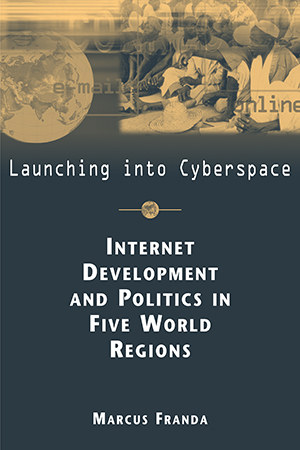
- 2001/297 pages
- iPolitics: Global Challenges in the Information Age
Launching into Cyberspace:
Internet Development and Politics in Five World Regions
Hardcover: $59.95
ISBN: 978-1-58826-012-3
Paperback: $22.00
ISBN: 978-1-58826-037-6
Launching into Cyberspace explores the Internet as an increasingly important variable in the study of comparative politics and international relations.
Focusing on Africa, the Middle East, Central and Eastern Europe, Eurasia, China, and India, Franda examines the extent to which Internet development has (or has not) taken place and the relationship between that development and the conduct of international relations. His case studies—incorporating an analysis of such wide-ranging variables as language and literacy, cultural values, political parties, leadership, and the availability of capital and technological expertise—also illuminate policy processes in differing political systems.
Franda provides new insights into the diffusion of the international Internet regime and, especially, Internet development as a major issue on the global policy agenda.







